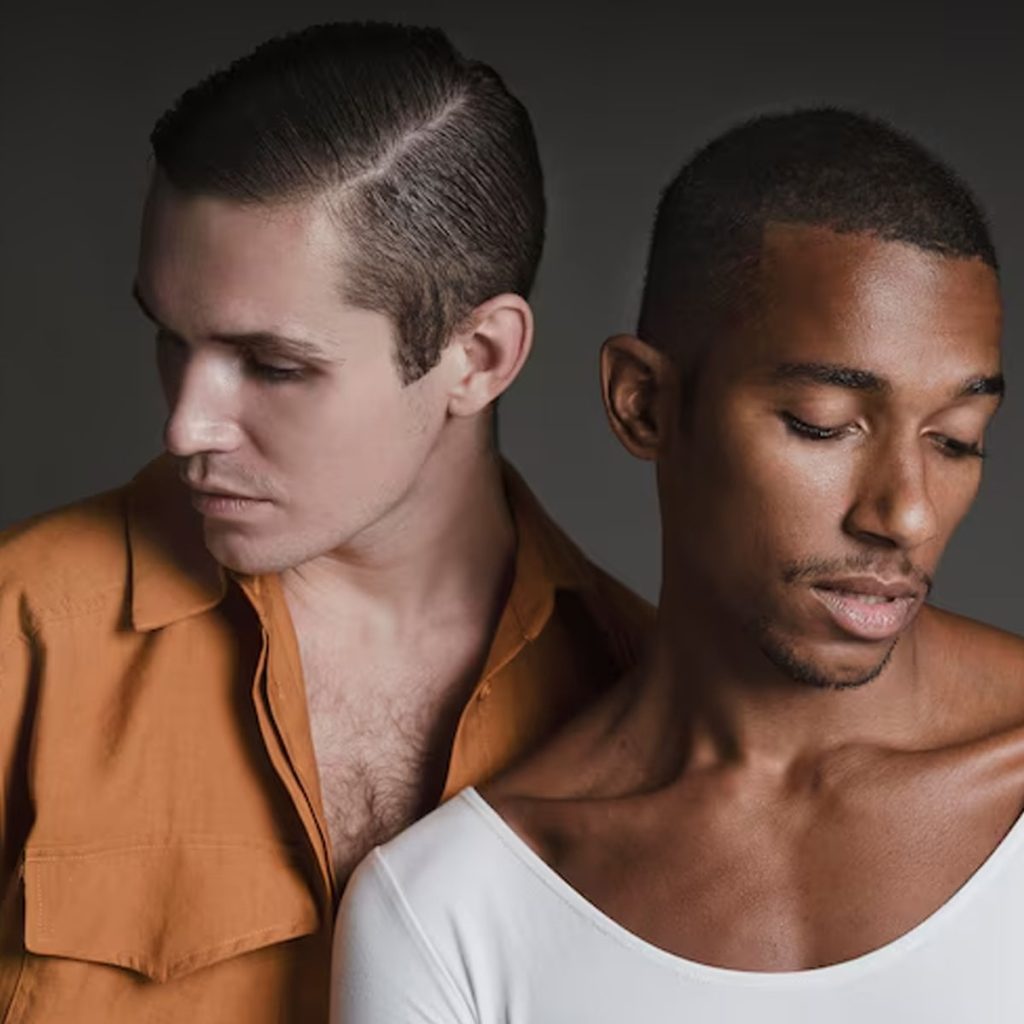A single shot of Paul Mescal sitting small on a bedsit mattress changed the temperature of global television. It aired in April 2020, when streets were empty and screens were crowded. Viewers leaned forward, drawn by a silence that felt truer than the thunder of blockbusters. That moment helped define modern masculinity, suggesting strength can whisper instead of shout. The scene also marked the arrival of a performer whose path ran through county pitches, cramped rehearsal rooms and one of Europe’s most challenging drama courses. His journey matters because it explains why audiences believe him: the craft is anchored in sweat, routine and community rather than glitter and algorithm.
Roots in Kildare Sport Meet Stage
Maynooth, County Kildare, does not sit on the usual map of international film scouts, yet it forged an Irish actor now shaping conversations on gender and art. Mescal’s first passion was Gaelic football, where he played as a hard-tackling defender for club and county age groups. Those Saturday mornings built his lungs, balance, and a competitive instinct that later served him well under stage lights. A fractured jaw ended his season at sixteen and nudged him towards the school musical. Cast as the Phantom, he felt an electricity he still chases. Friends recall a teenager who walked off the sports field and straight into chorus calls, carrying the same discipline into vocal warm-ups that he once reserved for sprint drills.
Mastering the Craft at The Lir
The Lir National Academy of Dramatic Art in Dublin is famous for converting raw potential into stage-ready precision. Tutors push students through Stanislavski text analysis, Alexander Technique, and voice sessions that leave vocal cords trembling. Mescal absorbed it all, graduating in 2017 with agency offers already on the table. Classmates talk about his habit of arriving early to tape marks on the floor, then staying late to replay scenes until the emotion sat under the skin rather than on top of it. That rigour underpins every “natural” moment the public later praised, proving authenticity often hides hours of granular practice.
Connell and the Normal People Phenomenon
Director Lenny Abrahamson needed someone who could wear small-town hesitation like a second skin. Mescal’s audition, recorded in a modest Dublin flat, delivered precisely that. On set, he brought lived-in detail: clipped Kildare vowels, the weight of a book bag on one shoulder, the way a rural teenager avoids eye contact until trust lands. Normal People launched on BBC iPlayer and Hulu during the first lockdown, attracting tens of millions of streams within weeks. Critics applauded its “microscopic shifts that feel seismic”, and Mescal collected a BAFTA Award that placed him on red-carpet shortlists overnight. Viewers responded because the performance mirrored feelings of isolation already pulsing through their own lives.
The Necklace Heard Around the World
Costume designer Lorna Marie Mugan chose a plain silver chain as Connell’s constant, hoping to hint at sentimentality beneath the quiet façade. Nobody predicted the explosion that followed. Within days, an Instagram account devoted to the jewellery gained six-figure followers, e-commerce searches for “men’s silver chain” spiked, and style writers crowned the accessory a touchstone of the Connell chain era. The necklace resonated because it signalled a man comfortable broadcasting attachment without fanfare. Its simplicity undercut clichés of flash masculinity, proving softness can live inside muscle. Mescal later raffled one of his own chains for suicide-prevention charity Pieta, raising more than seventy thousand euros and turning a viral trend into real-world impact.
Indie Choices Building Prestige
Hollywood studios rushed superhero scripts to the new star, yet Mescal pivoted towards director-led independent film. His feature debut in Maggie Gyllenhaal’s The Lost Daughter offered room to learn from Olivia Colman rather than chase CGI spectacle. Cannes soon followed with lead turns in God’s Creatures and Aftersun, each demanding a high-wire act of vulnerability. Friends say he picks roles on gut feeling, trusting the story over the salary. The strategy built critical capital that now fuels larger opportunities without diluting credibility. Industry analysts describe it as a masterclass in long-game career management, striking a balance between visibility and depth.
From Stage to Olivier Triumph
Theatre people like to say true range is proven in footlights, not close-ups. Mescal sharpened his instincts on Dublin stages first, yet it was London that tested the full weight of his talent. In 2022, he stepped into Stanley Kowalski for Rebecca Frecknall’s stripped-back revival of A Streetcar Named Desire. Audiences expected the familiar brute yet found something fresher, a man who could flip from tenderness to volcanic anger in half a breath. Reviewers wrote of a performer who stalked the boards with athletic ease while letting quieter notes linger. Night after night, he reset the temperature of the Almeida, then repeated the feat when the production transferred to the West End. The performance landed him the Olivier Award, the highest honour in British theatre, and settled any lingering question about whether screen stardom might blunt stage craft. Backstage crew members recall him sweeping the stage after curtain call, a gesture that spoke volumes about discipline learned long before the cameras rolled.


Style, Substance and the Rise of Mescalinity
Brands court him, yet his influence thrives on restraint. Off duty, he still pairs vintage Adidas with GAA shorts, turning post-gym errands into viral street-style posts. Fashion writers coined the term Mescalinity to capture a blend of accessible cool and emotional honesty that feels both grounded and progressive. Where former leading men favoured tuxedos cut within an inch of movement, Mescal opts for relaxed tailoring that hints at the body of an athlete while signalling comfort with softness. When he arrived at Cannes in crochet lace, searches for “men’s lace shirt” jumped across global retail platforms. Analysts note that relatability drives engagement: fans copy pieces they can actually afford, a rare advantage in luxury-heavy celebrity fashion cycles. That democratic pull aligns neatly with a public persona committed to charity work over clickbait reveals, reinforcing trust through consistent privacy.
Balancing Blockbusters with Gladiator II
Turning down at least three superhero scripts, he waited until a project aligned with his personal taste and artistic pedigree. Sir Ridley Scott’s Gladiator II provided both. Scott, having watched Normal People in lockdown, believed the stillness that held an iPad audience could anchor a Roman epic on the largest screen. Mescal undertook six months of dawn training, mastering sword drills, horse-handling and choreography designed to read clearly to the back row of an IMAX balcony. Crew reports describe an actor who insisted on historical dialect coaching between takes, arguing that authenticity in voice strengthens every swing of a blade. Studio executives already predict a billion-dollar result, yet Mescal frames the film as “a story about a young man searching for meaning”, placing character above spectacle. That hierarchy reassures critics who fear that intimate actors get swallowed by franchise machinery.
Awards, Economy and Cultural Influence
By twenty-nine, he holds a career triple crown: a BAFTA Award, Olivier Award, and an Academy nomination, plus Emmy and Critics’ Choice nods. Fewer than a dozen actors have reached that threshold before turning thirty-five. Economists track a measurable “Mescal bounce”: streaming spikes for Normal People reignite chain sales weeks later; Aftersun prompted a holiday-search surge to Turkey’s Lycian coast, with Booking.com registering a thirty-eight per cent rise in queries. Cultural commentators point to a flood of think-pieces on men’s mental health popping up after Aftersun screenings, crediting his portrayal for normalising vulnerable dialogue among younger male viewers. Universities slot “Mescalinity” modules into gender-studies syllabi, analysing how his roles bridge stoicism and openness without clichéd compromise. Commercial impact and academic attention rarely overlap; in this case, they feed a loop that strengthens his long-term brand value.
Fun Fact: During rehearsals for A Streetcar Named Desire, Mescal learned to crack a pool cue over his knee safely, only to discover the prop department had already rigged a break-away version.
Future Projects
The diary is stacked with work that pushes range rather than repeats a formula.
- Merrily We Roll Along – Richard Linklater’s twenty-year musical experiment, Mescal plays Franklin Shepard
- Hamnet – Chloé Zhao directs, Mescal portrays William Shakespeare
- The History of Sound – World War I romance opposite Andrew Scott
- Beatles Quartet – Sam Mendes trusts him with Paul McCartney across four linked biopics
- Untitled Yorgos Lanthimos film – early talks signal a possible reunion with The Favourite team
Conclusion: Future Shape of Authentic Masculinity
Paul Mescal’s path from County Kildare pitches to global box-office screens illustrates a formula built on craft first, commerce second. Each role, whether whisper-quiet or arena-loud, argues that genuine connection outperforms volume. In choosing trust over gossip and method over hype, he has become a lodestar for a generation negotiating new definitions of strength. Industry insiders believe the next decade will see him pivot between auteur films and prestige streaming while dropping into the theatre whenever script and schedule align. Wherever the stage, he carries proof that vulnerability, when backed by preparation, commands attention. The conversation about what men can be – tough, tender, complex – now has a living reference point, and his influence shows no sign of easing.




